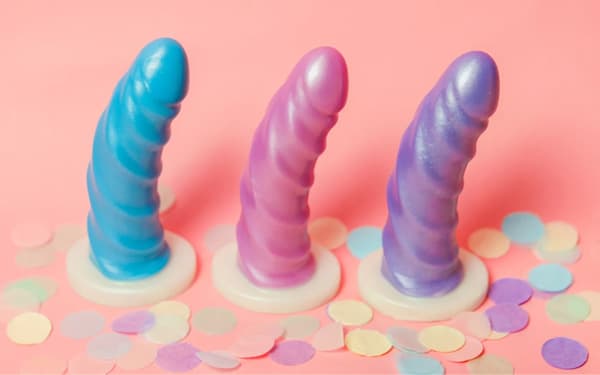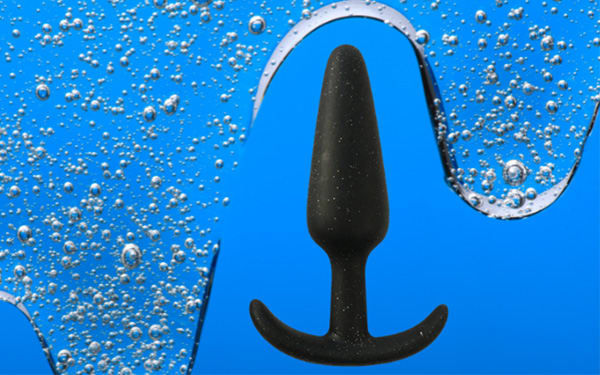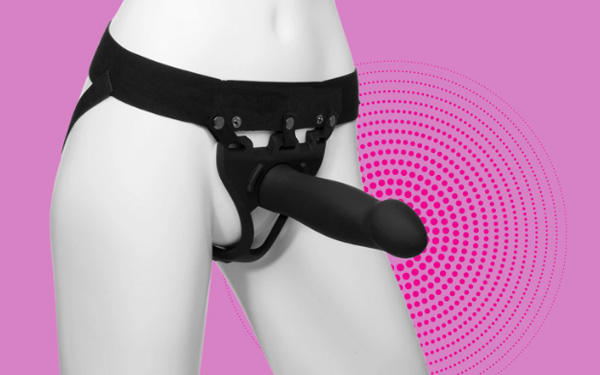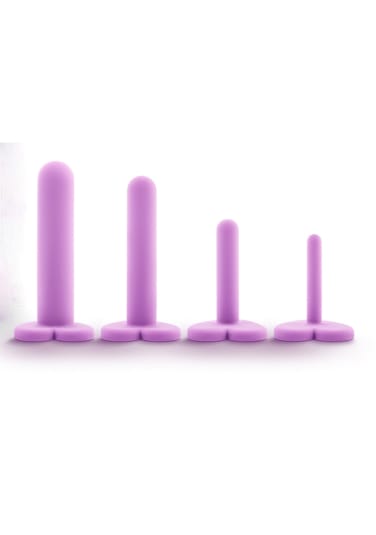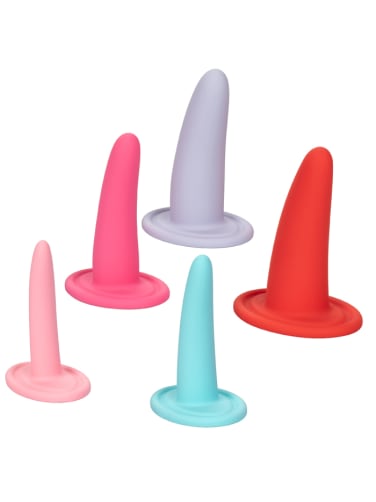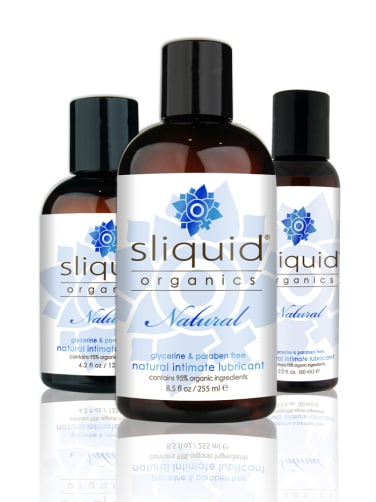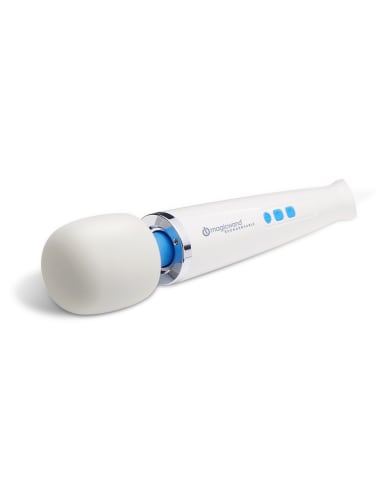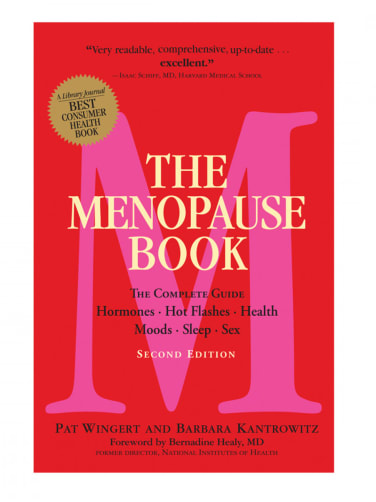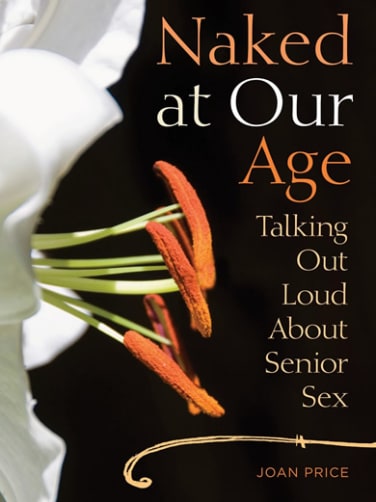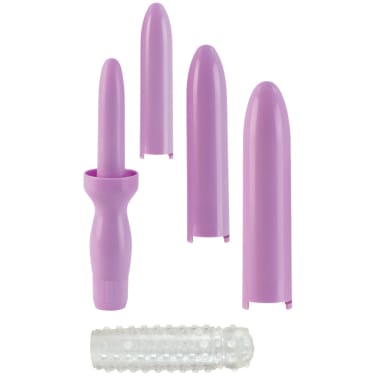Is It Hot in Here Or Is It Just Menopause?
Got ovaries? If you (or your partner) have noticed your mood, libido, and powers of concentration getting a little unstable, it might be perimenopause. This is the stage when hormone-related physical changes begin leading up to “the change of life,” aka the menopausal transition. All this can definitely alter what we experience sexually. Please remember that sometimes "the change" changes your sex life for the better!
What is Menopause and When Does it Begin?
Menopause refers specifically to the point when menstrual periods have been over for one year. Anyone who has experienced periods will go through it, if they live long enough to stop menstruating. Thinking of menopause as a midlife event that happens around the early 50s is basically right, for most. But this transition and its hormonal changes can take several years (that’s perimenopause) and the rest of our years after menopause are yet to come. Periods continue until menopause - though they may become more infrequent - and physical and mental effects may begin. These can include hot flashes aka vasomotor symptoms, libido changes, sleep effects, and many more changes. Read up on everything with Heather Corinna’s fierce, fabulous book What Fresh Hell Is This? Perimenopause, Menopause, Other Indignities, and You.
Perimenopause can start before age 40 for some. And surgical or medical menopause can happen through removal of the ovaries – for health reasons, or as part of a gender-affirming process. Because the ovaries are the primary source of estrogen and progesterone—and these are the hormones that regulate the menstrual cycle, among other things--surgical menopause is sudden. It stops periods and ushers in the perimenopausal bodily changes that ordinarily take several years.
This time of life may come as a relief. Those who have struggled with birth control side effects or worries about unwanted pregnancy can breathe easier. Our post-fertility years also open up new opportunities for centering and experiencing sex in different ways. Generally, it’s recommended that contraception continue for a year after the last period, so don’t ditch the condoms when you get a hot flash for the first time. In fact, maybe don’t ditch them at all, since STI risk will still be important to think about!
Navigating Perimenopausal and Menopausal Changes
Some will find these mid-life changes are a lot. For others, the many potential effects of menopause will be mild. To best handle the physical changes, stay hydrated and do all you can to get good sleep. Up your exercise game—especially moving in ways that are good for your core. Walk, take the stairs, dance—all of these help, since a sedentary life is likely to make libido and other changes hit harder.
And talk to your doc about all this! If they dismiss your experience and concerns, start looking for another doctor who’s sex-positive and menopause-savvy. Not all doctors learn much about low libido after menopause (and its other changes), which is a freakin' scandal given that half or so of the population will eventually need a doctor who understands what their menopausal patients are going through.
Some menopausal folks choose to take hormones to minimize the physical changes associated with this drop in hormone levels. Speak to your doctor about whether this is the right choice for you. Some will avoid them for health reasons, others prefer to age “au naturel,” and still others swear by them. Hormones are available in pill form, but you can also use intravaginal methods, including rings and creams.
After the last period–and after those years of power surges (hey, that’s what we call hot flashes)--this post-menopausal time may see you really feeling great, if your health is otherwise good.
Sex After Menopause
Menopause and its lead-up and aftermath can shift how you experience your body, desire, and arousal. And for many, this is a gift! Needing to slow down, be more clear about needs and wants, and respect your body’s messages can literally lead to better sex.
Menopausal folks can experience changes that affect sex quite a bit. Here’s how menopause affects sexual pleasure for many–though nothing here will be equally true for everyone: The urge for partner sex can decline, sometimes related to other changes: libido can fluctuate, genital sensation may change, orgasm may take longer. This is a time of life when some choose to turn their vibrators to the highest power setting! (If that’s waaaay too much, check out our info on selecting and enjoying lower-powered vibes.)
Grab the Lube!
If lubricant hasn’t already been part of your life, we bet you will discover its charms once you hit menopause, or if you have a hot-flashin’ partner in bed with you. Vaginal dryness solutions can make an enormous difference in comfort and pleasure.
With less estrogen, genital changes can include less vaginal lubrication. Inner mucosal skin may be more sensitive and in need of moisture to prevent friction and damage. In some cases–especially for those who are not taking hormones–pain with penetration can be an issue, and it can be especially relevant for those who have abstained from it for a while and begin again, for instance after a health crisis has resolved, or with a new partner. We’ve collected some info about sexual pain that might help here.
Take Time to Explore
Grab the lube, take it slow, learn to enjoy sex with a body that might feel new to you in some ways. Enjoy the ride—and consider exploring yourself with or without a partner, since staying erotically active helps with all these sex-related menopausal changes.
It’s especially good to understand the changes–or your new baseline–if you need to help a partner see that sex for you is a different experience now. But you won’t be alone in this! Read all of the wonderful Joan Price’s inspirational books - retaining your sexual pleasure as you age is her central area of expertise, and her words can help demystify and reinvigorate your sexual self!
The Best Sex Toys for Menopausal Pleasure
Toys and pleasure products can change adults’ lives at any stage, but they can really help you during and after “the change.” Sex toys for menopausal women can add to comfort and pleasure in myriad ways. Vibrators can support arousal and blood flow. Dildos and PC exercisers allow you to gain more comfort with insertive play. (Always use lubricant for insertive play, solo or with partners.)
The best sex toys for women after menopause can vary from person to person, but let’s consider some great choices:
Wand vibrators
These are often the strongest vibes available, though you can also choose smaller, milder ones if you prefer. If genital sensation has become more muted after menopause, a vibrator like this may provide a stronger response. These are external-use vibes.
My recommendation: Magic Wand Plus
The Magic Wand family of vibes is regarded so highly by users and educators that of course we want to introduce it to you if you're not already an enthusiast. The Plus has a widely variable range, allowing you to start low and ramp up—or whatever feels good. For ease of storing, the cord is detachable. (The Magic Wand comes in a cordless rechargeable version if that sounds better to you.)
Palm vibes
These are terrific for external play and can be used anywhere on the body. They are especially good during intercourse or other partner play for adding clitoral stimulation, which can support arousal and orgasm.
My recommendation: Pom Vibrator by Dame
Well-regarded women's health brand Dame hit the mark with this palm-shaped vibrator. Pom is quiet, soft, and has a well-placed peak-shaped feature that helps you give direct stimulation to the clitoris, either hand-held or for laying on top of and enjoying grinding with your toy hands-free. Waterproof, rechargeable, cushy and bendable—Pom is an all-around great design.
Dildos
Whether you choose a vibrating dildo (or insertable vibrator) or not, consider starting with a slim one, especially if it’s been a while since you’ve experienced penetration play. Not sure what size will be right for you? Explore with a dilator set featuring graduated sizes. Some like exploring anal play with toys like this as well; remember to choose an anal-safe one with a base, if that’s something you’d like to try. And don’t forget the lube!
My recommendation: Boundless Smooth Dildo
This smooth and slim dildo comes in two lengths (4.75” or 6”) and has a suction cup base in case you want to stick it to anything for stability! It's curved, but without texturing, making it a great choice if you're trying to get back into insertive sex after a time without it—and it's anal-safe too.
PC exercisers
Also called Kegel exercisers, these are especially useful if your vaginal and pelvic floor muscles are out of tone, and exercising them can help you have stronger orgasms.
My recommendation: Utopia Kegel Trainer Set
This simple-to-use set offers you three sizes to explore and use for pelvic floor toning. They're weighted and uniquely shaped to increase your PC strength as you explore the three levels, and many users also simply love the sensation.
 Communication: How to Talk About & Initiate Intimacy
Communication: How to Talk About & Initiate Intimacy
It is more important than ever to be frank about what you need to get in the mood for sex and what you do/don’t want in bed. Is it more sensuous arousal play, slower sex in general, a vibrator on the clitoris? Sounds like a terrific way to spend the afternoon to us!
Intimacy after 50–and for some, in the thick of perimenopause too–will be optimized when you can communicate about your needs and experience to any partners you may have, whether they've been on the ride through perimenopause with you or have stepped into your life more recently. They may know little or nothing about hormonal changes and sex drive; you can help them understand, especially if you have been solo-sexing your way to understanding your “new normal.”
Additionally, you may want to initiate some (or all of) your encounters based on your own interest and comfort–even if you haven’t done that in the past. Doing this can set you up for extra-pleasurable experiences.
Tools for Intimacy
There are many ways to increase intimacy after menopause. None is more important than talking to your partner, which helps optimize your pleasure by letting you set the pace and avoid painful experiences. Communicating about sex directly creates intimacy, helping you both prioritize pleasure and understanding.
Comfortable sex positions for postmenopausal women vary from person to person, but two important things to consider are how supported your body feels, and how comfortable deep penetration is (or is not). For the former priority, many love to use positioning pillows. These can support your body so you can explore which positions feel the best. They’re especially helpful if you’re bothered by arthritis or other pain conditions.
Penetration depth can be addressed by taking it slow, using a safeword, making sure arousal is optimized. Using soft rings - like the OhNut or a stopper ring - on a penis or longer toy can prevent too-deep thrusts, if those deep sensations do not feel good for your body.
And of course any kind of sexy play might be on the table for you, meaning that even if intercourse is off the menu, so many kinds of pleasure are there to explore. Solo or with partners, menopause reminds us what a journey life is–and how much connection and pleasure may be found at any time, if you prioritize listening to your body and sharing what you learn.

